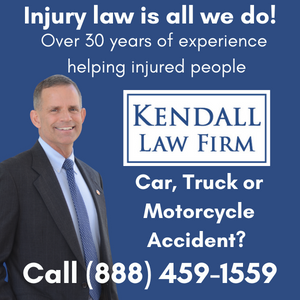Cognitive impairment after a Harrisonburg brain injury
In Harrisonburg, Virginia, individuals who suffer brain injuries may experience cognitive impairments, which can significantly affect their daily lives. These impairments may manifest as memory loss, difficulty concentrating, trouble with decision-making, and problems processing information. Brain injuries, whether caused by vehicle accidents, workplace incidents, or falls, often damage specific areas of the brain responsible for these functions. The severity of the cognitive impairment depends on factors such as the location and extent of the injury, and recovery may be slow or incomplete, requiring long-term rehabilitation.
From a legal perspective, those suffering from cognitive impairment after a brain injury in Harrisonburg face unique challenges. They may struggle to advocate for themselves in the aftermath of an accident and may require assistance from family members or legal professionals to handle their claims. Compensation may be sought for medical expenses, lost wages, and long-term care, as these injuries can prevent individuals from returning to work or living independently. An experienced brain injury lawyer can help navigate complex legal and medical issues, ensuring victims receive the support they need for recovery.
Medical issues that can often accompany cognitive impairment include:
- Memory loss – Difficulty recalling recent events or personal information.
- Attention deficits – Trouble maintaining focus or staying on task.
- Language problems – Difficulty finding words or understanding language.
- Executive function issues – Impaired ability to plan, organize, or make decisions.
- Mood disorders – Depression or anxiety related to cognitive changes.
- Sleep disturbances – Insomnia or fragmented sleep patterns.
- Fatigue – Persistent tiredness and lack of energy.
- Headaches – Frequent or chronic headaches, often associated with brain injury.
- Sensory processing issues – Difficulty interpreting visual, auditory, or tactile stimuli.
- Seizures – Some individuals may experience seizures following brain trauma.
These issues can further complicate recovery and increase the need for comprehensive medical care.
Filing a personal injury claim for cognitive impairment presents significant legal challenges because these impairments are often difficult to quantify and prove in court. Unlike visible physical injuries, cognitive impairments such as memory loss, difficulty focusing, or decision-making issues may not show up clearly on medical scans, making it harder to demonstrate the full extent of the damage. Additionally, the symptoms can vary widely and may fluctuate over time, complicating the process of establishing a direct connection between the injury and its long-term effects. Expert testimony from neurologists, neuropsychologists, and other specialists is often required to validate the injury and its impact on the victim’s life, but even with expert input, insurers and opposing parties may dispute the severity of the impairment, making it an uphill legal battle to secure fair compensation.
If you've suffered a brain injury in an accident, click the links below to get help from an attorney who specializes in your type of accident or injury:
- Harrisonburg auto accident attorney;
- Harrisonburg pedestrian injury attorney;
- Harrisonburg motorcycle crash lawyer;
- Harrisonburg truck crash lawyer;
- Harrisonburg bicycle collision attorney;
- Harrisonburg slip-and-fall accident attorney;
- Harrisonburg drunk driving crash lawyer;
- Harrisonburg distracted driving collision attorney;
- Harrisonburg rear-end accident law office;
- Harrisonburg T-bone collision lawyer;
- Harrisonburg rollover crash attorney;
- Harrisonburg pileup accident lawyer;
- Harrisonburg fatigued driver accident attorney;
- Harrisonburg aggressive driving accident law firm;
- Harrisonburg hit-and-run accident lawyer;
- Harrisonburg uninsured driver accident attorney;
- Harrisonburg head-on accident lawyer;
- Harrisonburg reckless driving accident lawyer;
- Harrisonburg wrongful death claim lawyer;
- Harrisonburg spinal cord injury attorney;
- Harrisonburg whiplash injury law firm;
- Harrisonburg brain injury attorney.
Regardless of how severe an accident is, almost everyone involved has to deal with insurance companies and claims. For crashes involving more serious injuries, or when a fatal crash occurs, a Charlottesville personal injury attorney is needed to manage the insurance claim. Go here to learn more about how a Harrisonburg brain injury lawyer helps injured victims.
Return to the Harrisonburg brain injury information page
Most recent accident reports
- Page 1
- next ›


